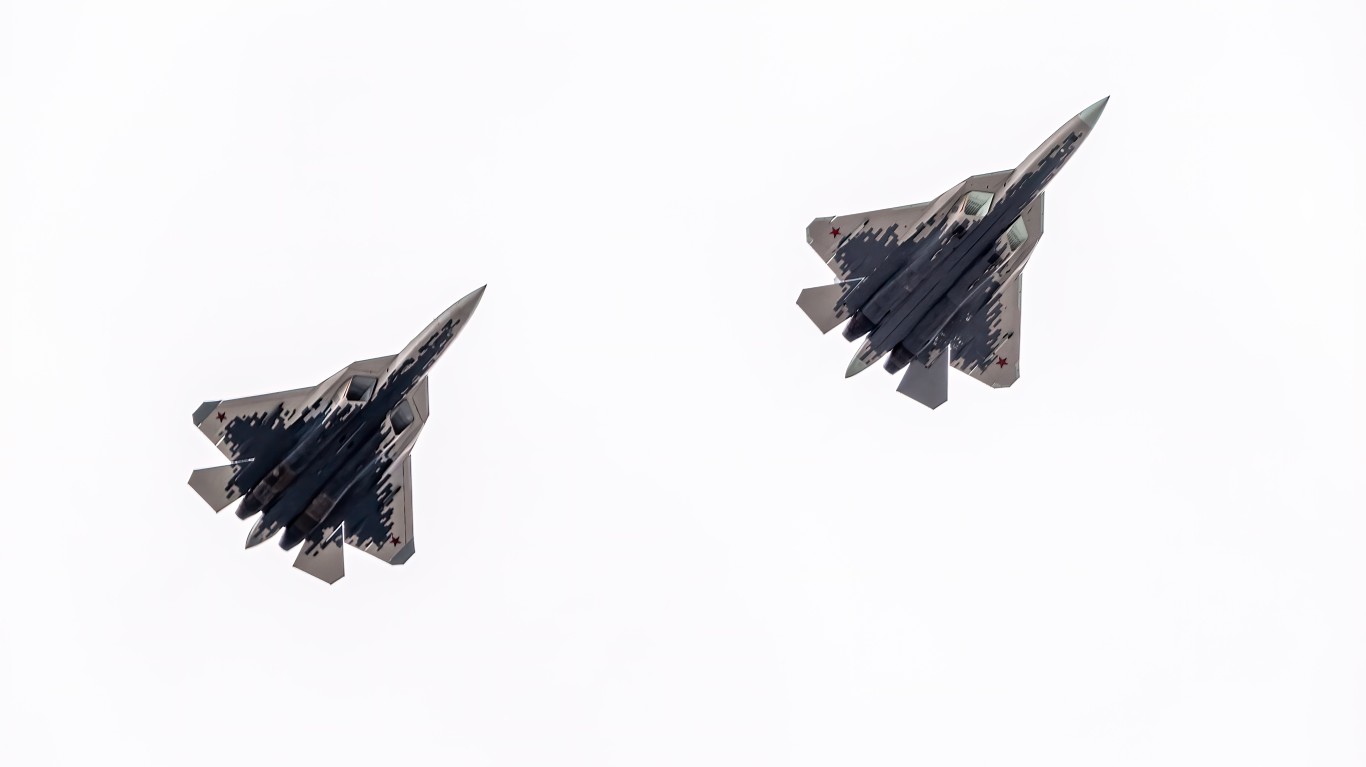
The next generation of military aircraft represents the latest evolution in aerial combat, and much of this leap forward is in stealth technology. Although modern stealth technology was first developed in the late 1970s, it has become increasingly prevalent in the fifth-generation of fighter jet aircraft. Stealth aircraft combine technologies that aim to help the aircraft avoid detection by reducing reflection, radar detection, and certain emissions such as infrared, radio frequency, and audio.
These advanced crafts have enhanced stealth capabilities, highly integrated computer systems, and superior overall performance. Famous examples of such technology include the F-22 Raptor and F-35 Lightning II, both hailing from the United States.
To identify the most widely used stealth planes on Earth, 24/7 Wall St. reviewed the report 2023 World Air Forces from FlightGlobal, an aviation and aerospace industry website. Stealth aircraft, including uncrewed aerial vehicles, were ranked by the number of units in service in the 163 countries with data on FlightGlobal. UAV figures came from Military Factory. Supplemental data regarding the type of aircraft and notable countries that use it also came from FlightGlobal. Data on top speed came from Military Factory.
Notably, most of the aircraft on the list are fifth-generation fighter jets loaded with stealth technology that allows them to effectively evade or minimize detection by radar and other sensor systems. Other entries include the next generation of UAVs generally purposed for reconnaissance or surveillance. Stealth bombers make an appearance as well. (Also see, the 26 military aircraft of the future.)
Stealth aircraft of only three countries make the list – Russia, China, and the United States. Noticeably, not many other countries have stealth aircraft as they lack the production capabilities. However, the United States has already been shipping its F-35 Lightning II to its allies, while Russia and China are reportedly looking to sell their next generation of stealth aircraft as well.
The F-35 Lightning II is the most prevalent stealth aircraft on this list, employed by a host of countries — mainly U.S. allies. Its design integrates radar-absorbent materials and distinctive external lines commonly found in stealth technology. The aircraft’s structure is intentionally crafted to deflect incoming radar signals away from the source radar, thus lowering the radar cross-section and making it difficult for defense systems to pinpoint its actual location. Additionally, the aircraft’s thermal signature is reduced due to the internal integration of weapon systems and engine exhaust cooling technologies. (On the flip side, these are the aircraft being phased out by the U.S. military.)
Overall, the stealth features, sophisticated computer systems, and improved performance characteristics of these aircraft represent considerable strides in defense aviation technology. As modern warfare continues to evolve, the importance of incorporating stealth aircraft into air forces across the world would be paramount.
Click here to see the most widely-used stealth planes on Earth.
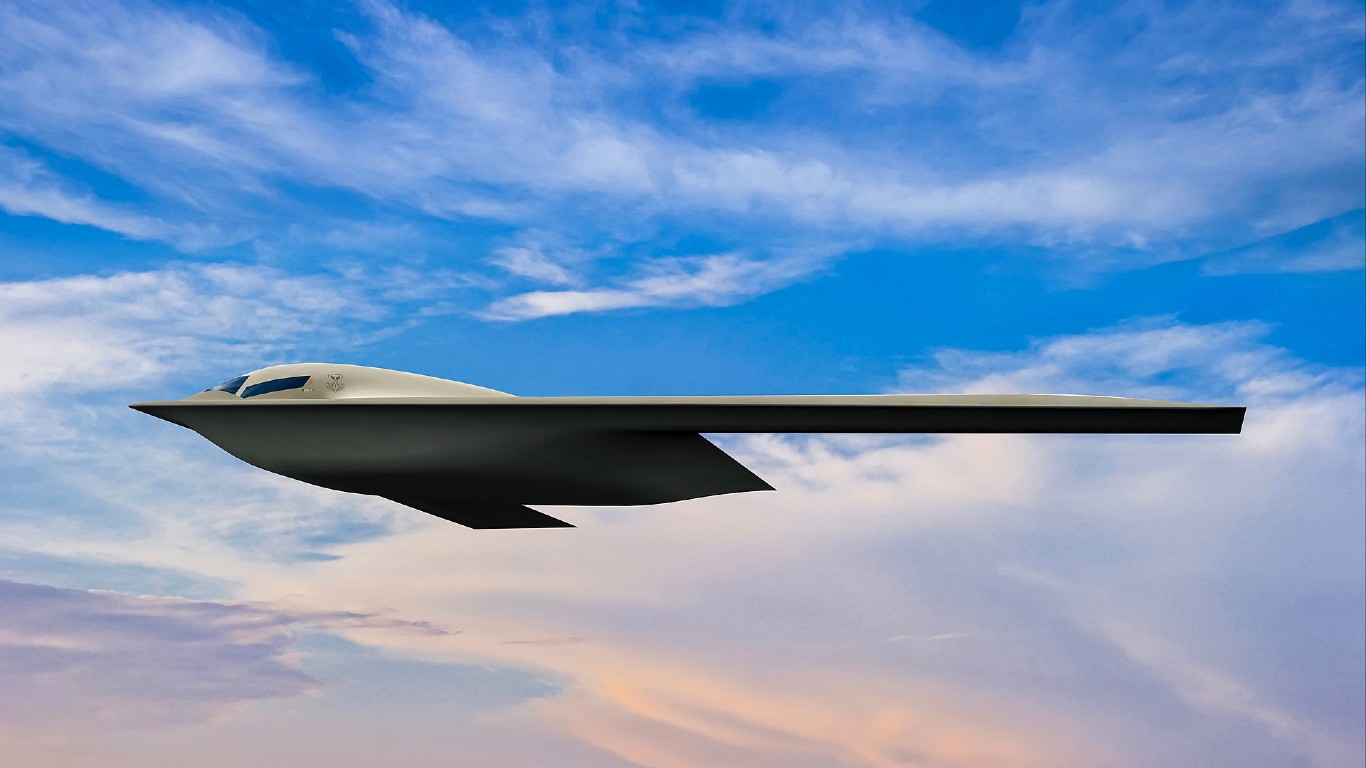
14. B-21 Raider
> Number of aircraft in service: 0 (100 on order)
> Countries in use: United States
> Top speed: 621 mph
> Type: Stealth bomber
[in-text-ad]
13. Sukhoi Checkmate (Su-75)
> Number of aircraft in service: 1 (tied)
> Countries in use: Russia
> Top speed: 808 mph
> Type: Fighter jet

12. Sukhoi Felon (Su-57)
> Number of aircraft in service: 1 (tied)
> Countries in use: Russia
> Top speed: 1,616 mph
> Type: Fighter jet
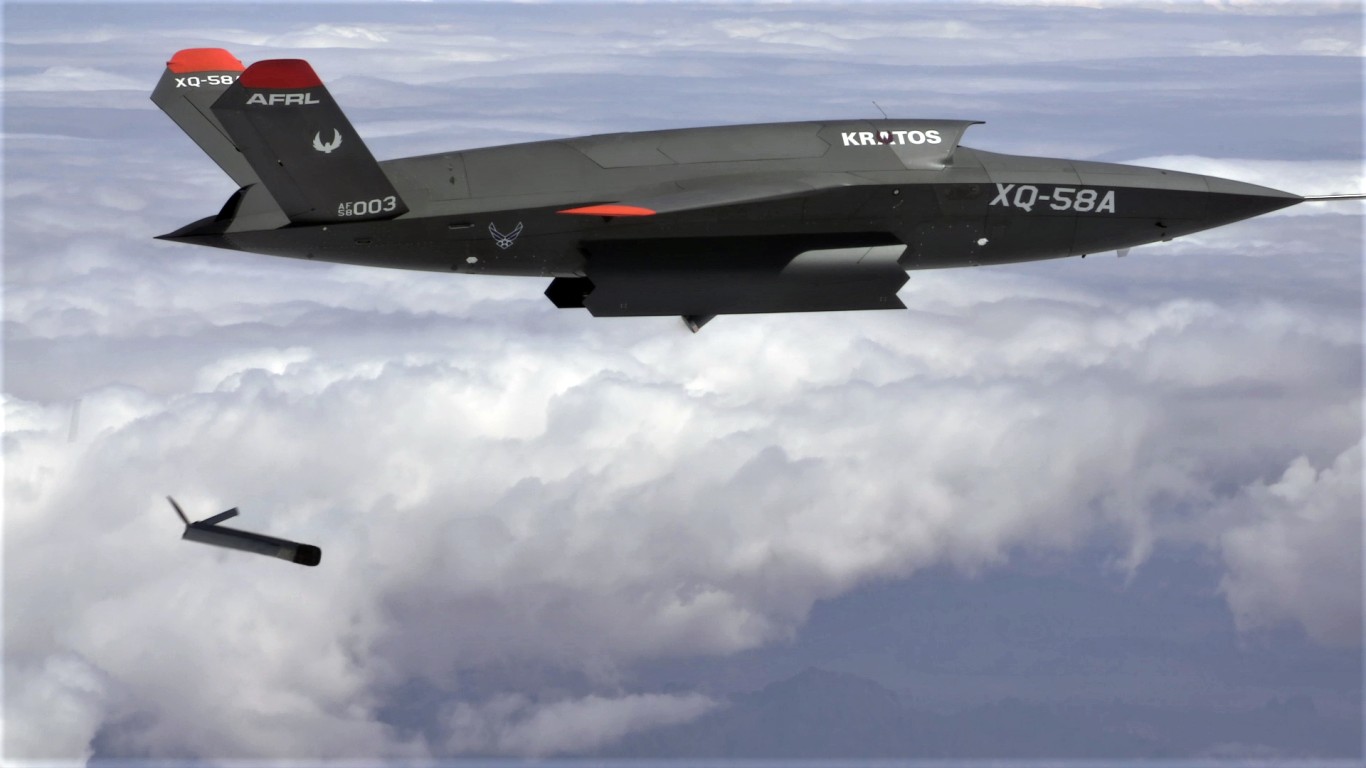
11. Kratos XQ-58 Valkyrie
> Number of aircraft in service: 1 (tied)
> Countries in use: United States
> Top speed: 652 mph
> Type: Unmanned Aerial Vehicle (UAV)
[in-text-ad-2]

10. Northrop Grumman RQ-180
> Number of aircraft in service: 1 (tied)
> Countries in use: United States
> Top speed: 590 mph
> Type: Unmanned Aerial Vehicle (UAV)
9. Hongdu Gongji-11 (GJ-11)
> Number of aircraft in service: 12
> Countries in use: China
> Top speed: 621 mph
> Type: Unmanned Aerial Vehicle (UAV)
[in-text-ad]
8. B-2 Spirit
> Number of aircraft in service: 18
> Countries in use: United States
> Top speed: 628 mph
> Type: Stealth bomber
7. Chengdu Black Eagle (J-20)
> Number of aircraft in service: 19
> Countries in use: China
> Top speed: 1,305 mph
> Type: Fighter jet
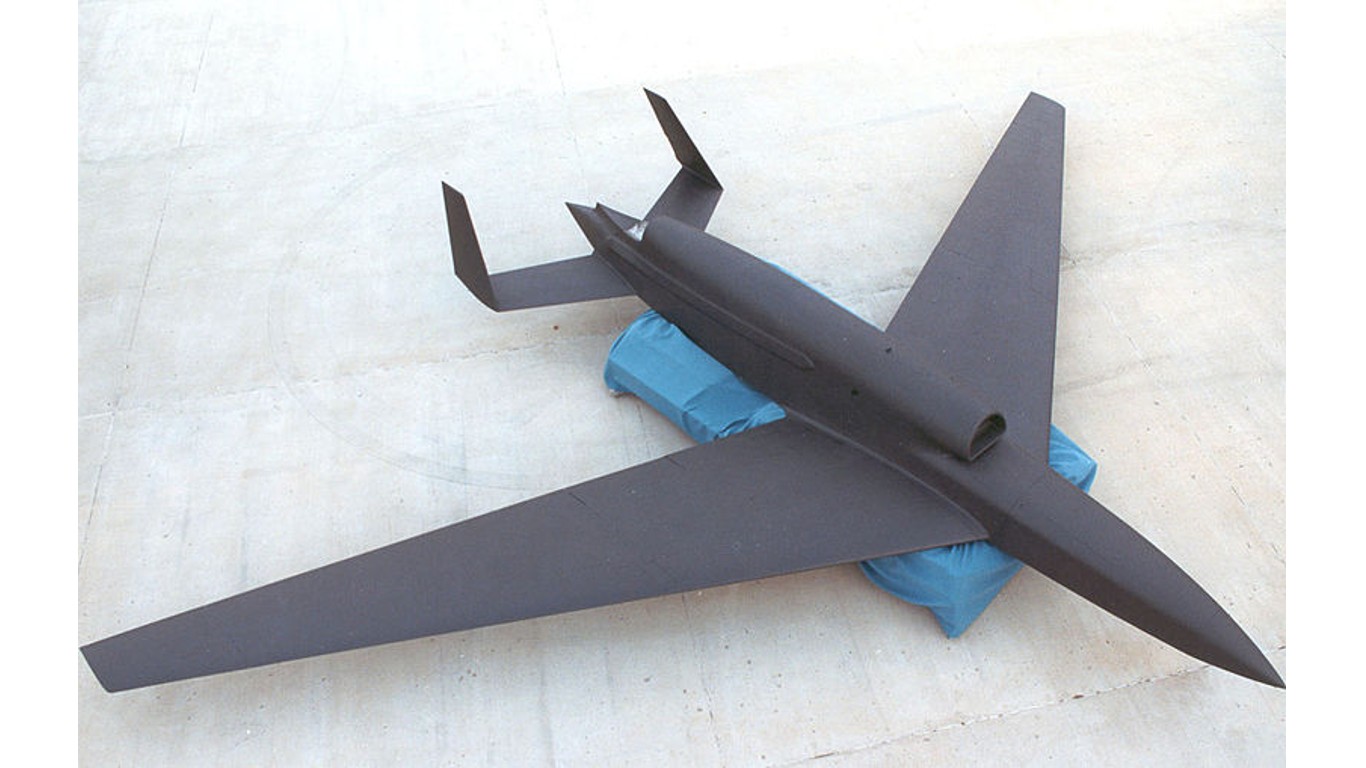
6. Ryan AQM-91 Firefly
> Number of jets in service: 28
> Countries in use: United States
> Top speed: 505 mph
> Type: Unmanned Aerial Vehicle (UAV)
[in-text-ad-2]
5. Lockheed Martin RQ-170 Sentinel
> Number of aircraft in service: 50
> Countries in use: United States
> Top speed: 590 mph
> Type: Unmanned Aerial Vehicle (UAV)
4. Shenyang Red Eagle (J-16)
> Number of aircraft in service: 105
> Countries in use: China
> Top speed: 1,522 mph
> Type: Fighter jet
[in-text-ad]
3. F-22 Raptor
> Number of aircraft in service: 177
> Countries in use: United States
> Top speed: 1,599 mph
> Type: Fighter jet
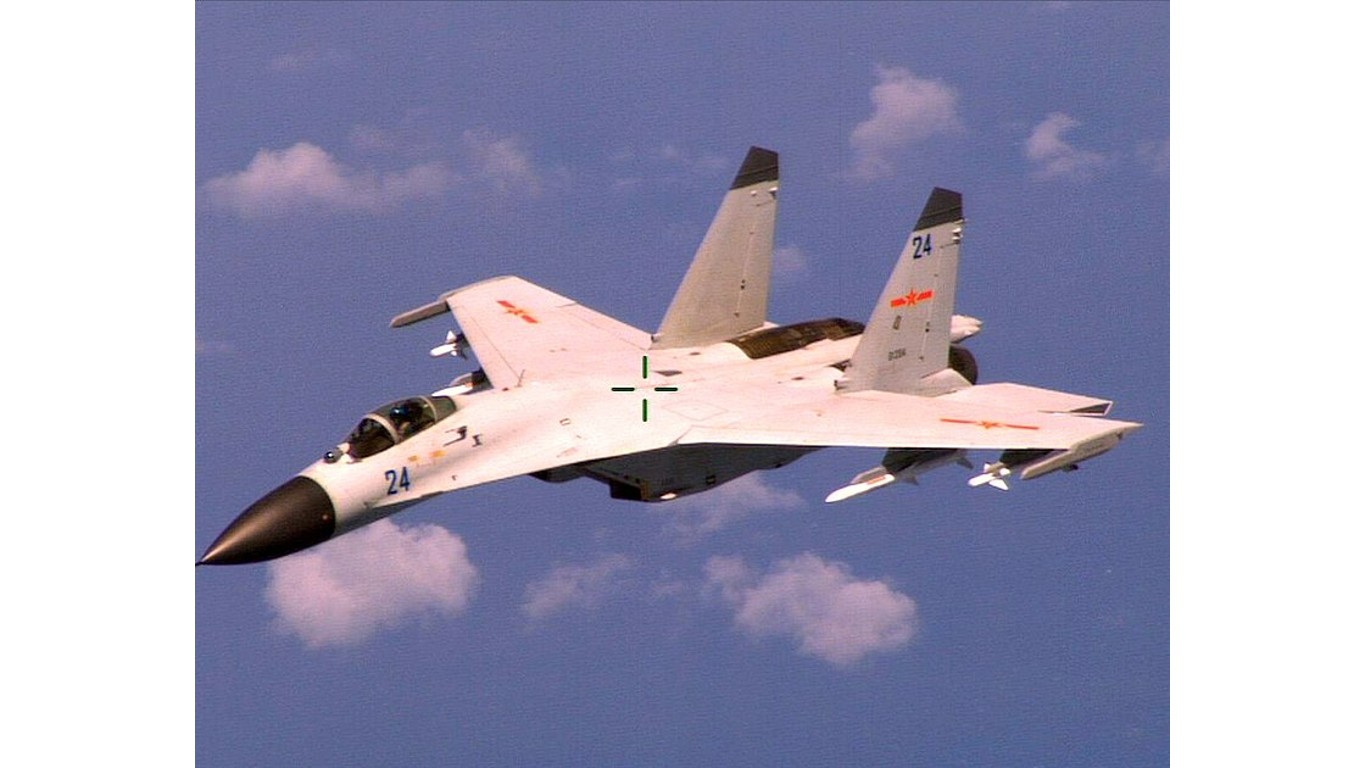
2. Shenyang Flanker B+ (J-11)
> Number of aircraft in service: 255
> Countries in use: China
> Top speed: 1,553 mph
> Type: Fighter jet
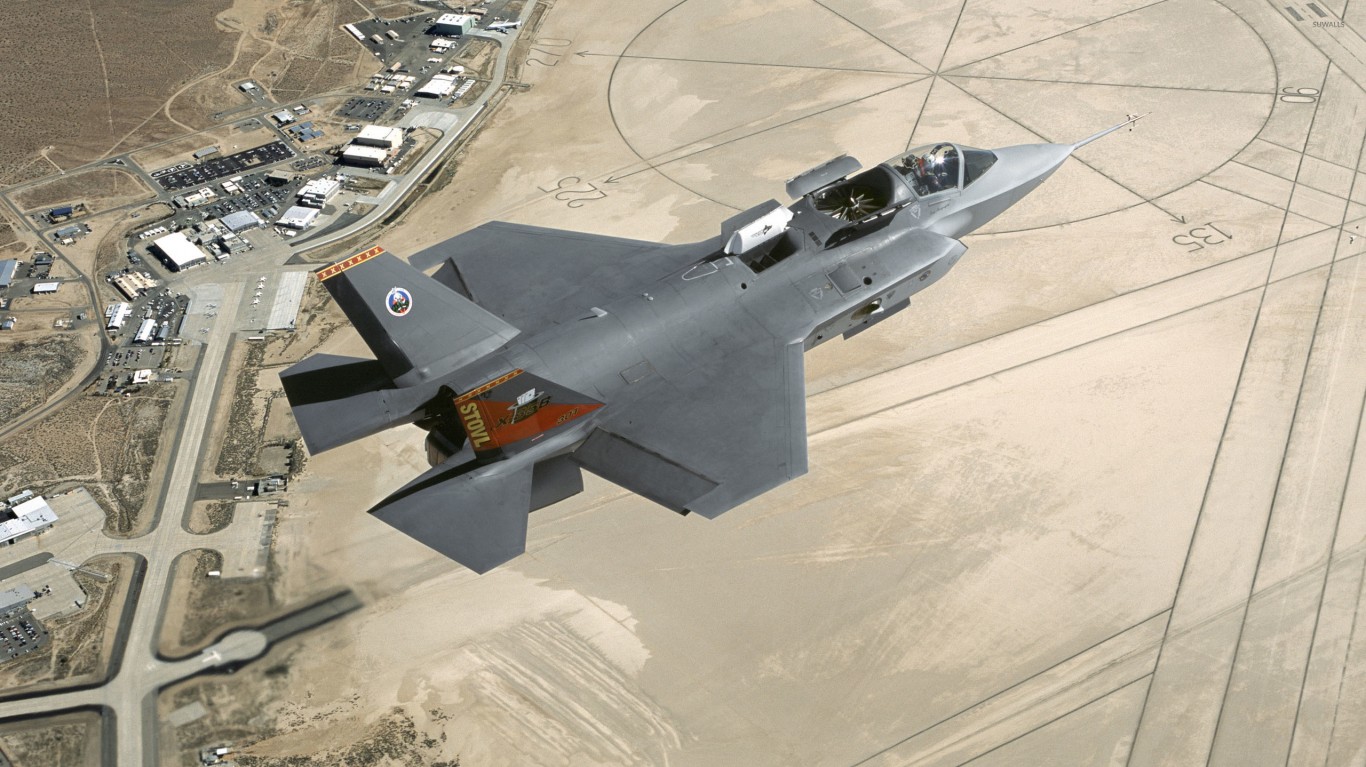
1. F-35 Lightning II
> Number of aircraft in service: 716
> Countries in use: Canada, Germany, Israel, Italy, Japan, United States
> Top speed: 1,199 mph
> Type: Fighter jet
The Average American Is Losing Momentum On Their Savings Every Day (Sponsor)
If you’re like many Americans and keep your money ‘safe’ in a checking or savings account, think again. The average yield on a savings account is a paltry .4%1 today. Checking accounts are even worse.
But there is good news. To win qualified customers, some accounts are paying more than 7x the national average. That’s an incredible way to keep your money safe and earn more at the same time. Our top pick for high yield savings accounts includes other benefits as well. You can earn a $200 bonus and up to 7X the national average with qualifying deposits. Terms apply. Member, FDIC.
Click here to see how much more you could be earning on your savings today. It takes just a few minutes to open an account to make your money work for you.
Thank you for reading! Have some feedback for us?
Contact the 24/7 Wall St. editorial team.
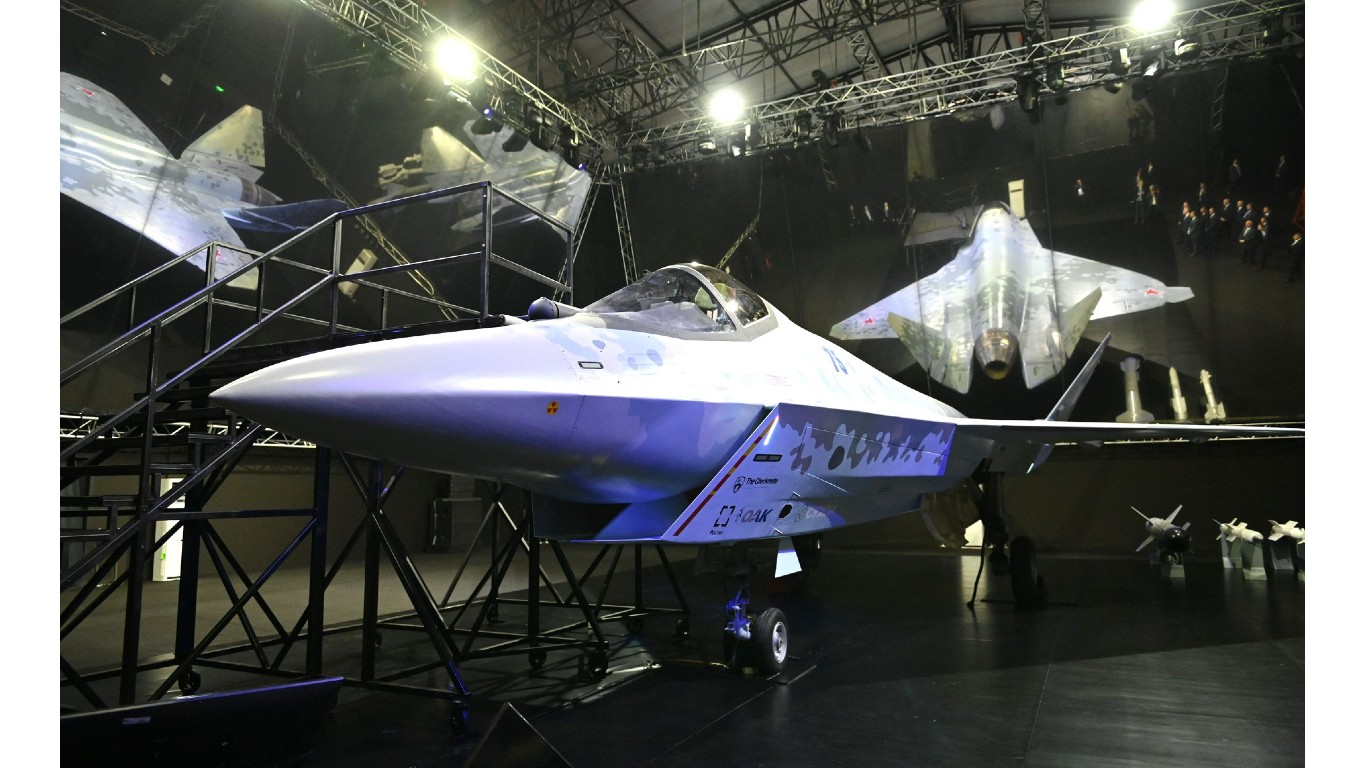
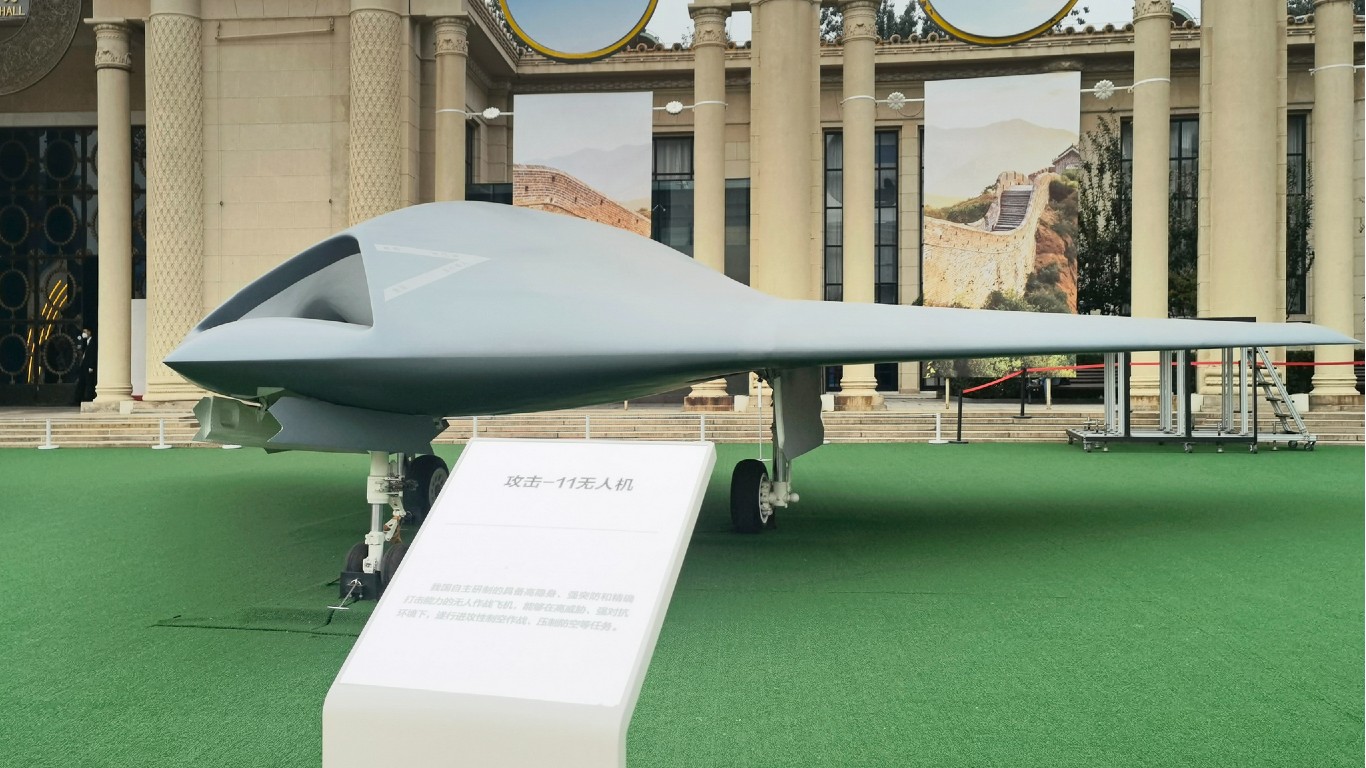
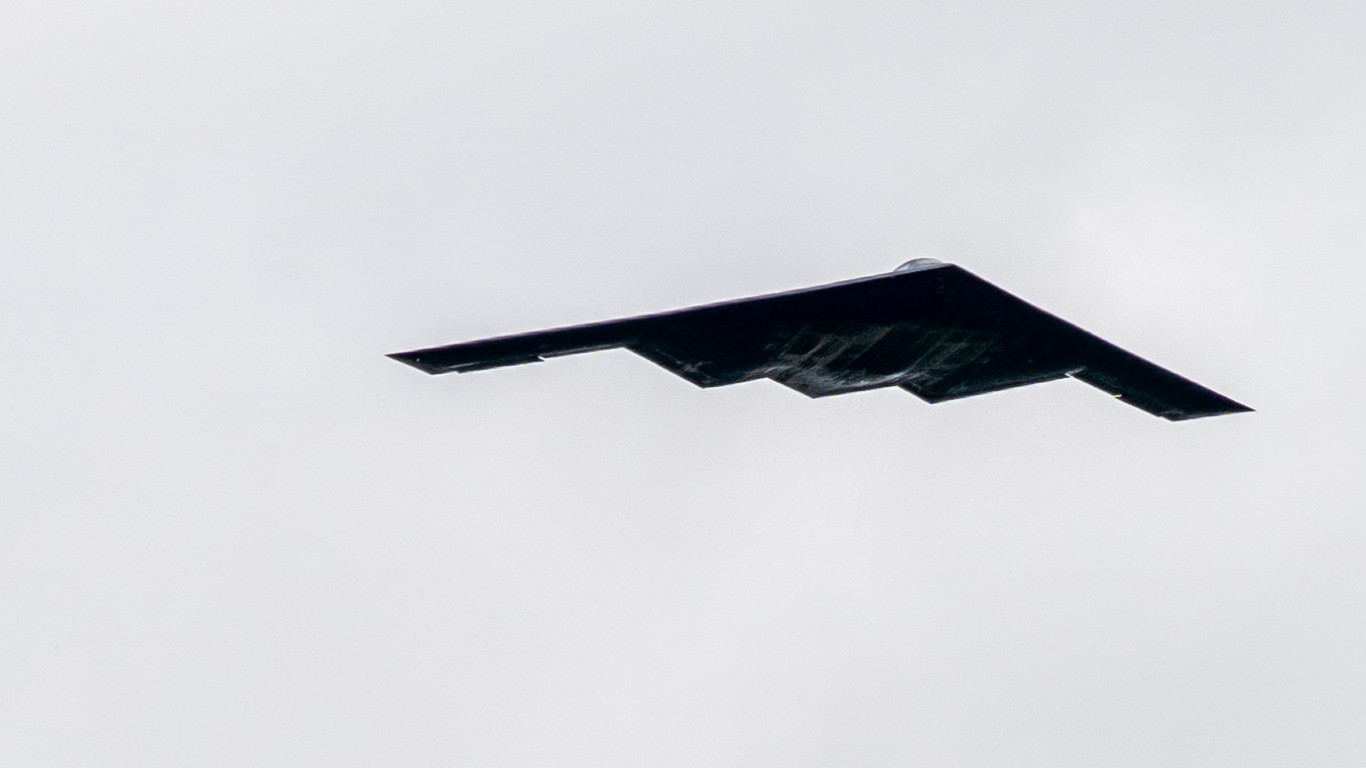
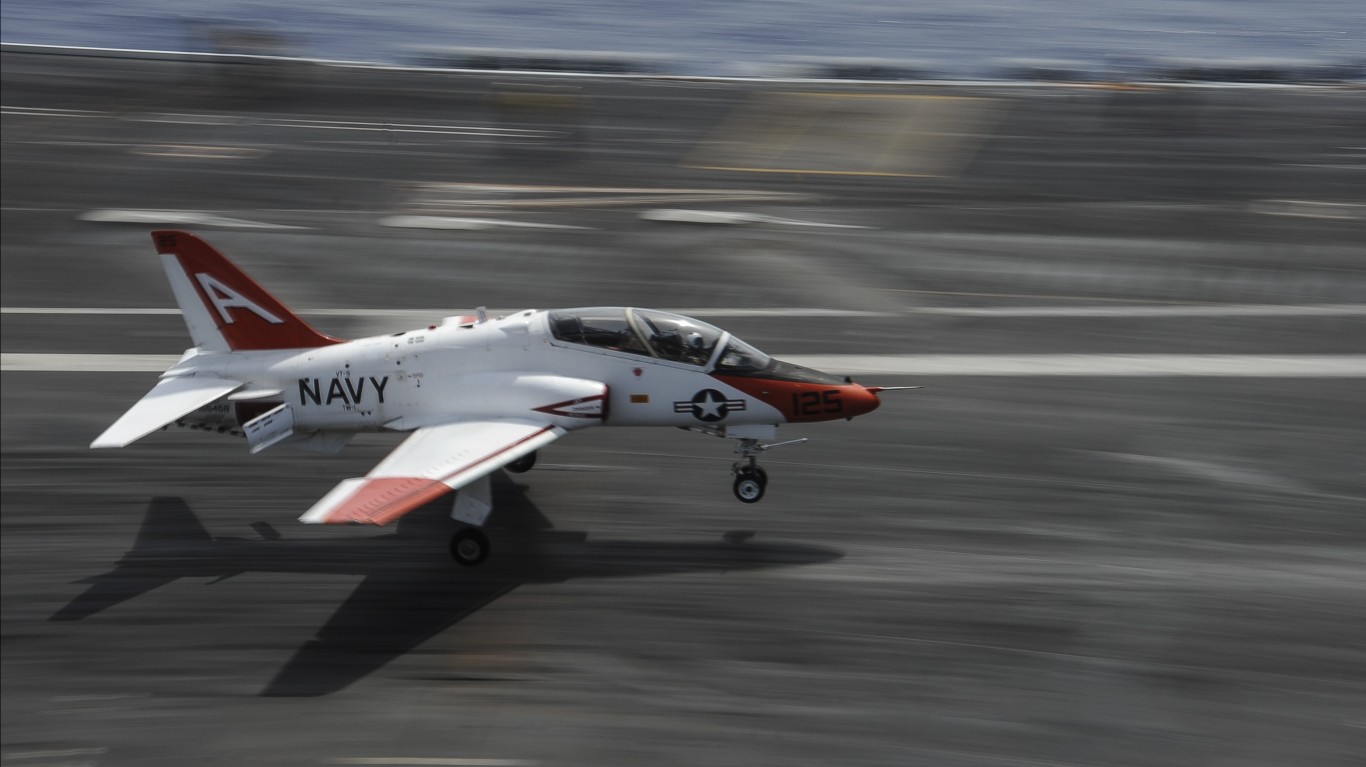 24/7 Wall St.
24/7 Wall St.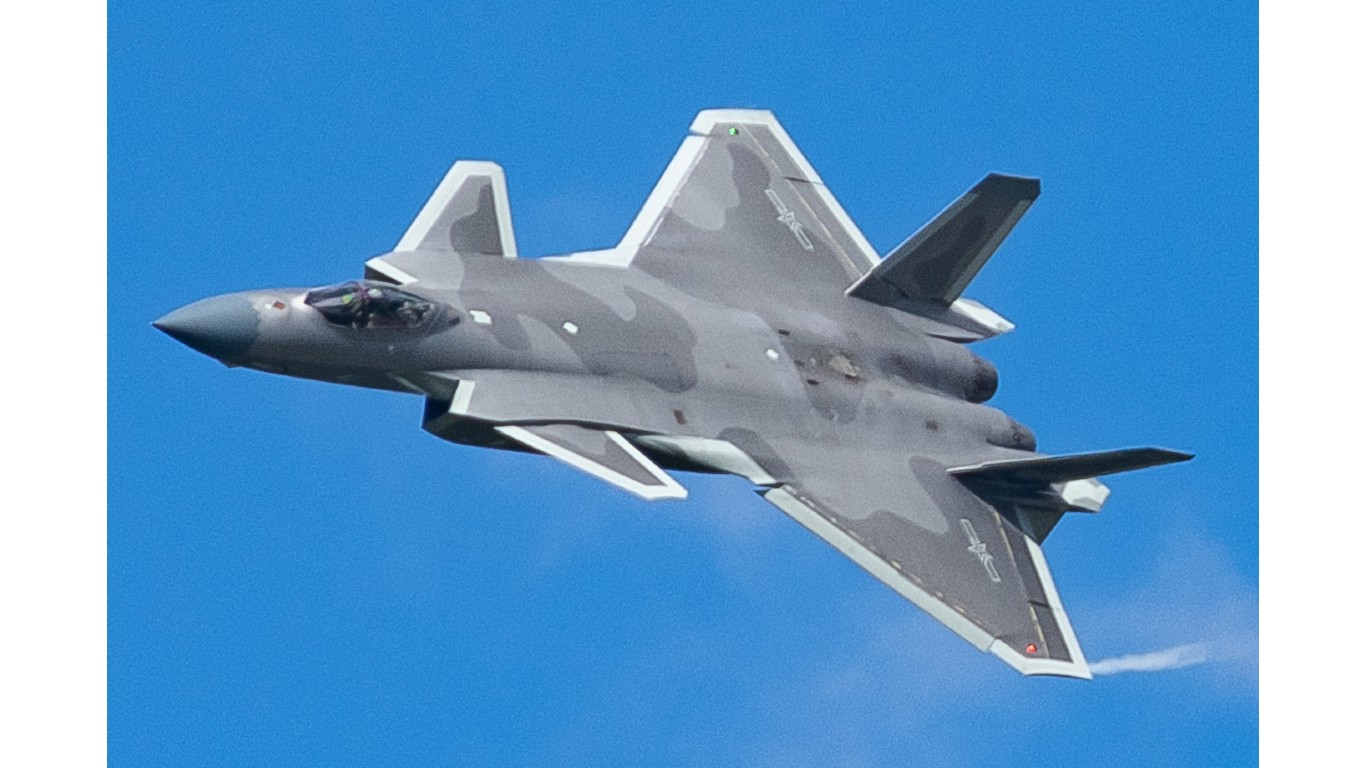
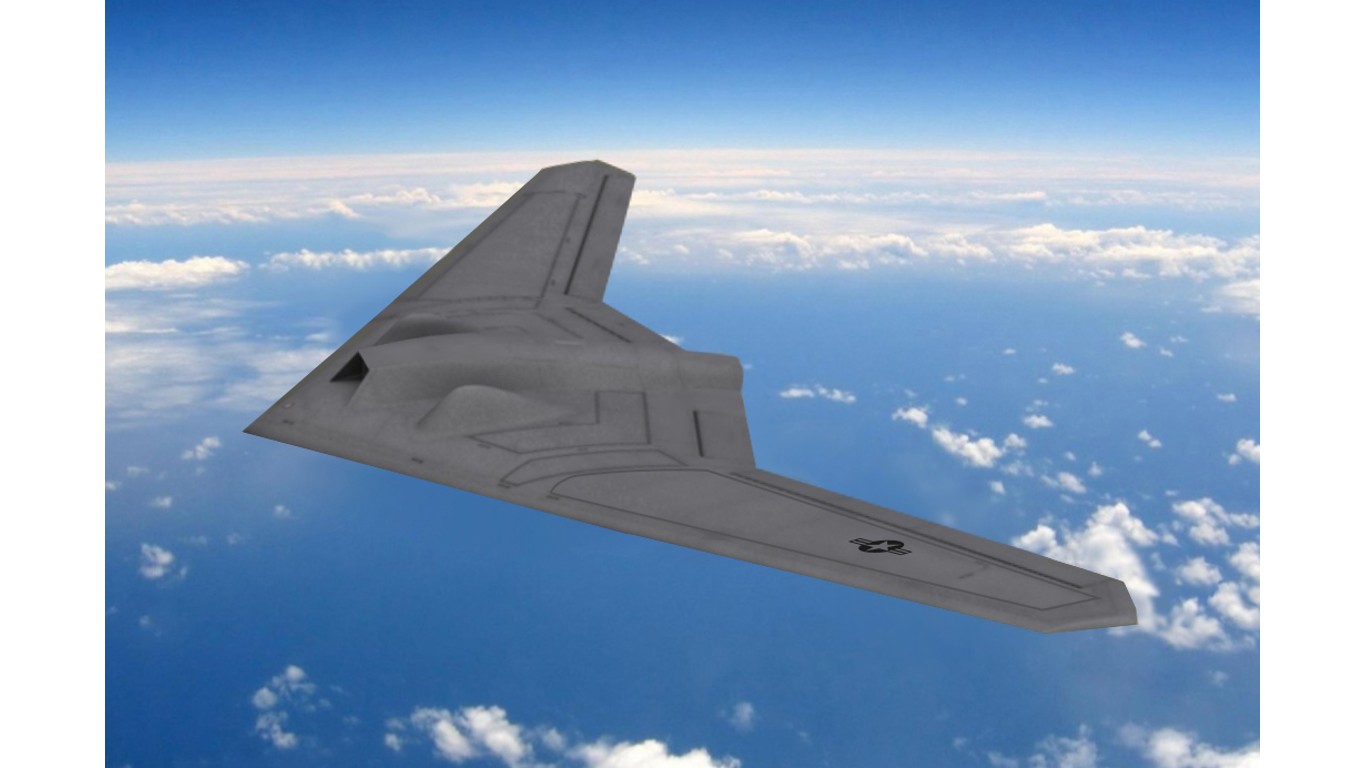
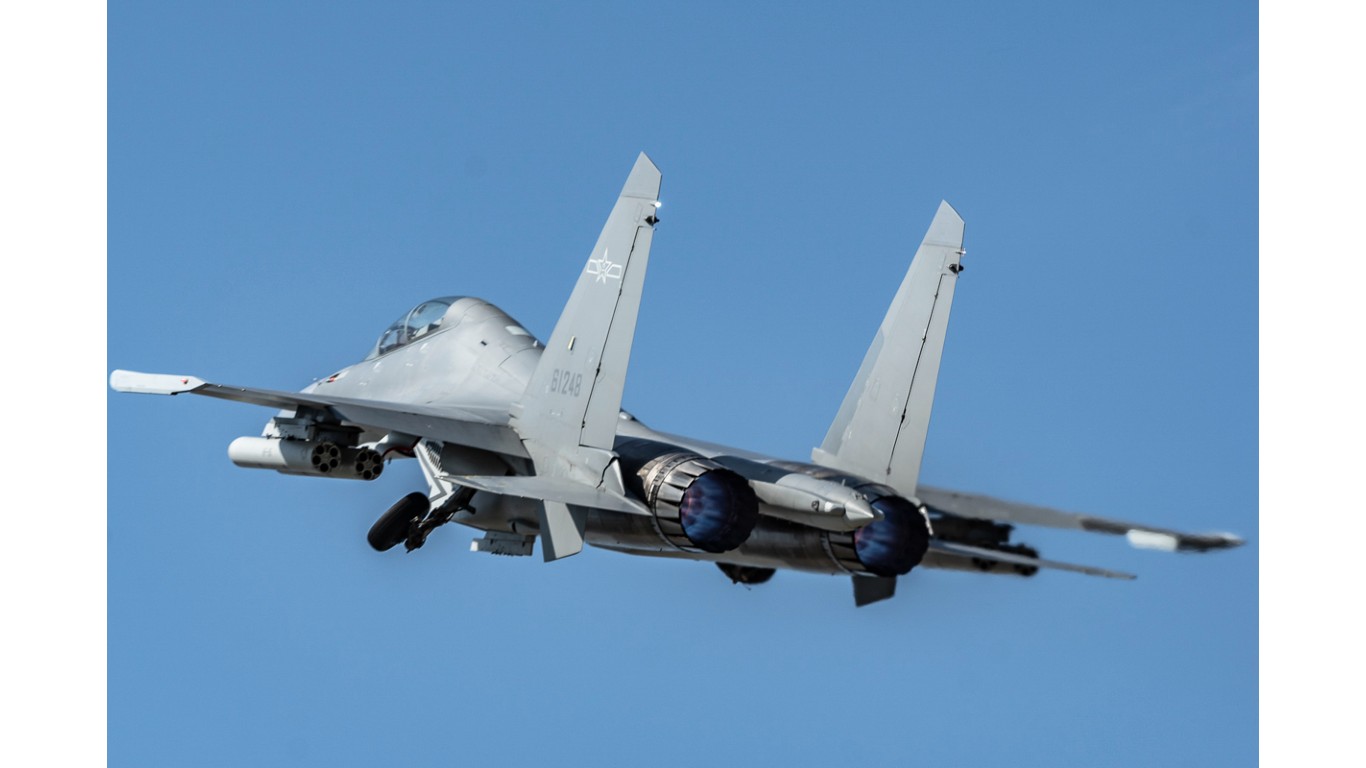
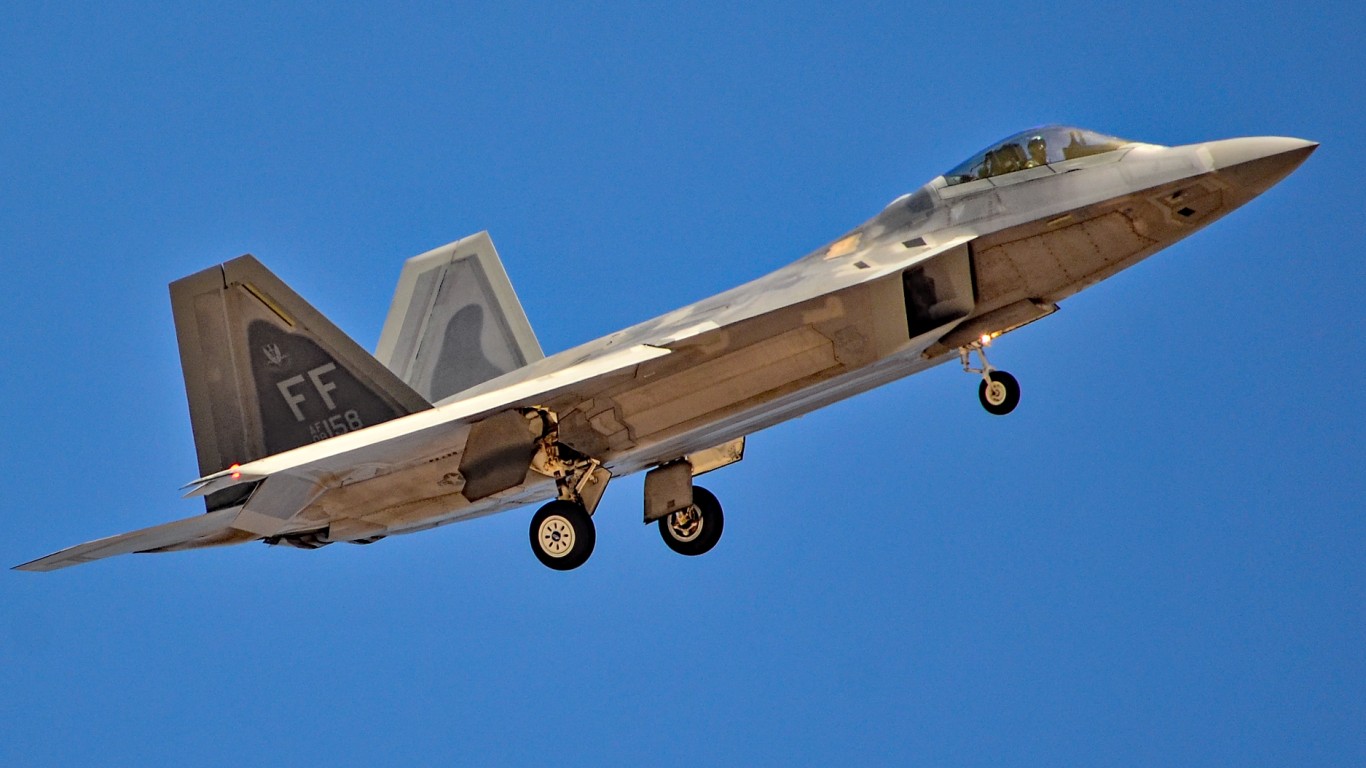
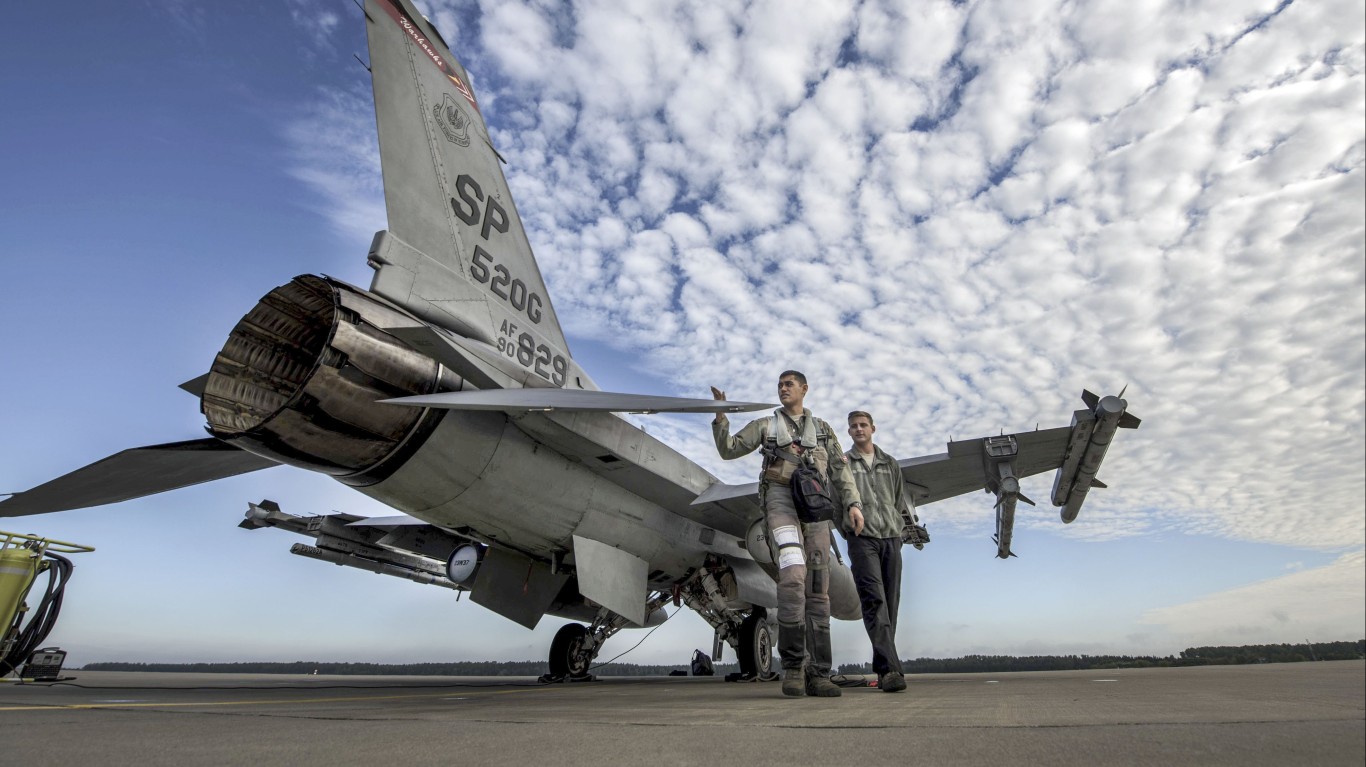 24/7 Wall St.
24/7 Wall St.
